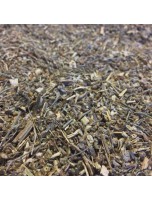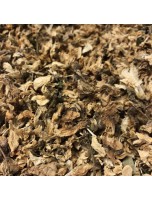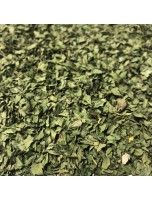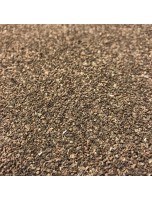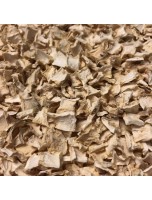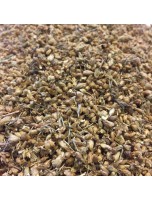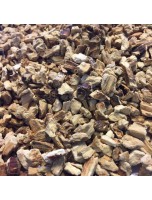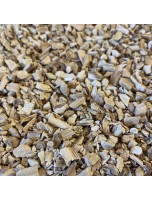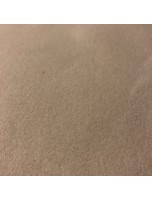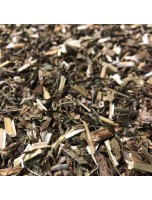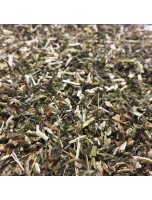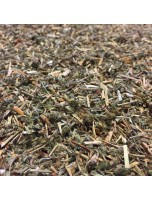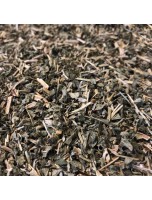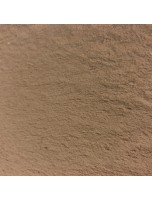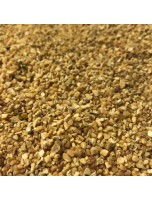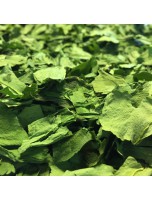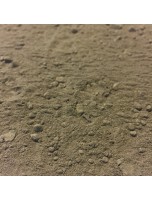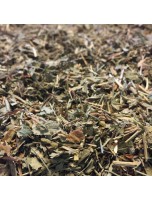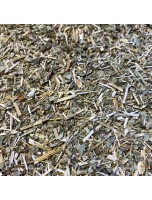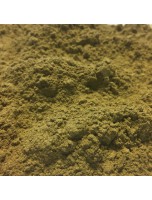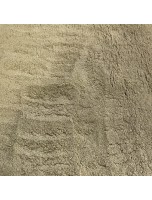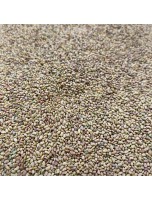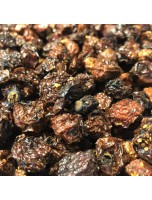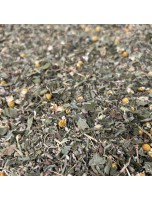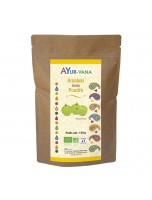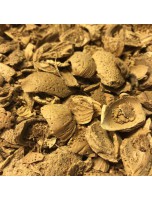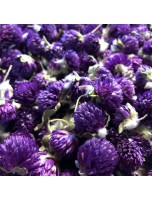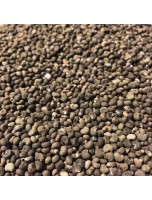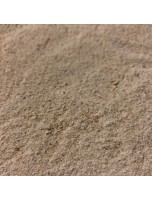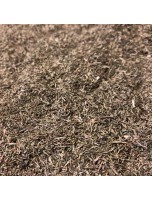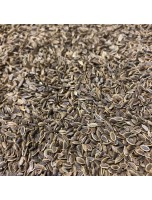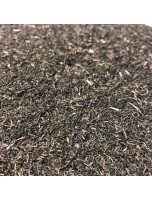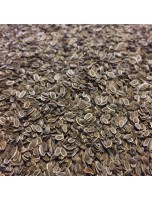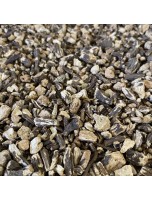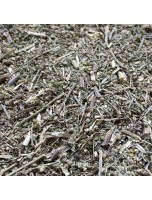
 Tisanes
Tisanes

Tisanes Bio de l'herboristerie
Comment sont choisies les tisanes de plantes de l'herboristerie ?
Les plantes médicinales de l'herboristerie Louis sont sélectionnées avec rigueur par Louis, herboriste diplômé. Grâce à une préparation et à un séchage de hautes qualités, les plantes sont ainsi prêtes à vous offrir le meilleur de leurs principes actifs !
Quelles tisanes trouve-t-on à l'herboristerie Louis ?
Découvrez dans cette section dédiée aux tisanes les plantes médicinales issues de l'agriculture biologique en sachets de 50 à 400 grammes. Les propriétés pouvant différer selon la partie de la plante utilisée, vous trouverez dans notre herboristerie aussi bien des racines de Curcuma longa Bio, des graines de Lin Bio, de l'écorce de Saule blanc Bio, des sommités fleuries de Reine des prés, ou encore des feuilles de Maté Bio.
Parmi tous nos mélanges de tisanes, les plus demandées sont la tisane sommeil pour dormir à base de verveine et de mélisse et la tisane et la tisane pour la digestion à base de d'achillée et de mauve.
De nombreuses plantes sont également disponibles sous forme de poudres, afin de créer vous-même vos propres gélules !
Comment préparer correctement sa tisane de plante médicinale ?
Le mode de préparation de la plante (décoction, macération, infusion) sera détaillé sur chaque fiche afin de vous aider au mieux à réaliser des tisanes naturelles et efficaces. Ainsi, les brisures de feuilles de Sauge seront préparées à l'aide d'une infusion de 2 grammes de plante par tasse alors qu'il faudra réaliser une décoction pour extraire les principes actifs de l'écorce de Lapacho, utile pour vos défenses immunitaires.
Sur chaque fiche de plante, vous aurez également la possibilité de connaître son histoire, ses propriétés mais également les contre-indications afin de pouvoir l'employer en toute sécurité.
Les tisanes réputées de l'herboristerie Louis
L'herboristerie Louis et son site Louis-herboristerie.com sont fiers de vous proposer la gamme de plantes médicinales et de tisanes la plus riche actuellement disponible sur internet et en magasins : nous espérons sincèrement que vous trouverez dans cette partie du site une solution naturelle et biologique aux maux de votre quotidien.
Aujourd’hui, de plus en plus de personnes s’orientent chaque jour toujours un peu plus vers des solutions de soins et des aliments plus respectueux de notre environnement et de notre corps. L’idée est de retrouver le savoir-faire de la pharmacopée populaire et de la phytothérapie qui s’est perdue au début du XIXe siècle avec le développement de la médecine moderne. L’herboristerie est alors devenue un lieu de rencontre privilégié pour ceux qui souhaitent redécouvrir les plantes médicinales et privilégier la phytothérapie à la médecine conventionnelle. Mais qu’est-ce qu’une herboristerie ? Quelle est son histoire ? Quels sont les produits et plantes que l’on retrouve en herboristerie ? On fait le point.
Qu’est ce qu’est l’herboristerie ?
Sous son acception moderne, l’herboristerie désigne une pratique professionnelle qui consiste à commercialiser des plantes médicinales.
L’herboristerie est à ne pas confondre avec l’herbologie, une science qui étudie, de manière purement théorique, les effets actifs et vertus médicinales des plantes. Les deux pratiques sont cependant proches. L’herboriste est également spécialiste en phytothérapie, en aromathérapie, et en gemmothérapie.
Par métonymie, le terme herboristerie désigne également le lieu où sont commercialisées les plantes médicinales. Cette boutique est alors tenue par un herboriste, un professionnel de l’herboristerie qui sait manipuler les plantes médicinales, les prépare et possède une formation en herboristerie et en phytothérapie.
Quelle est l’histoire de l’herboristerie ?
Le premier traité portant sur la pratique de l’herboristerie et décrivant l’usage de plantes médicinales date de la civilisation mésopotamienne du IVe millénaire av. J.‑C., de la période dite d’Uruk (naissance de l’écriture). Il est cependant très probable que l’herboristerie ait été pratiquée durant la préhistoire. Ces suppositions sont régulièrement confirmées par certaines fouilles archéologiques qui mettent à jour des préparations médicinales à base de plantes.
L’herboristerie se développera par la suite au sein des civilisations de l’Égypte et de la Grèce Antique. L’on retrouve en effet de nombreux traités datant de ces deux civilisations portant sur la préparation de plantes médicinales.
Le premier ouvrage en latin à nous être parvenu fut « de materia medica » rédigé au tout début de notre ère par Dioscoride, un médecin et botaniste grec. Cet ouvrage consacré à l’herboristerie devint la référence en matière de pharmacopée jusqu’au moyen-âge aussi bien dans le monde chrétien que musulmane.
À la fin du moyen-âge, l’herboristerie se divise en trois corporations bien distinctes qui entrent souvent en lutte entre elles. Il s’agit des « herbiers » (qui deviendront herboristes), des apothicaires (qui deviendront pharmaciens) et des médecins (qui s’inspirent principalement de la médecine des signatures).
Les XVIe, XVIIe, et XVIIIe siècles seront caractérisés par un développement constant des connaissances vis-à-vis des plantes médicinales et de l’herboristerie. Cependant, malgré l’efficacité de l’herboristerie, l’apparition de la médecine moderne à l’orée du XIXe siècle tendra à discréditer l’usage de plantes médicinales et de la phytothérapie. Le XXe siècle vit alors pratiquement disparaître cette pratique.
Heureusement, le « retour à la terre » que nous avons connu depuis les années 70 a remis au goût du jour l’herboristerie et l’on retrouve aujourd’hui de plus en plus d’herboristes dans nos villes et nos campagnes.
Quels sont les bienfaits de l’herboristerie ?
Du fait même que l’herboristerie consiste à prendre le meilleur des plantes médicinales pour préparer des remèdes, cette pratique possède de nombreux bienfaits et avantages pour le corps humain.
En effet, l’herboristerie est une pratique qui, aujourd’hui, permet d’opter, en accord avec son médecin traitant, pour un traitement complètement naturel et de se libérer de certains effets secondaires de médicaments de synthèse. L’herboristerie permet ainsi de traiter certaines pathologies, et ce de manière complètement naturelle.
L’herboristerie est aujourd’hui un excellent moyen de traiter les petits inconforts du quotidien et les maux bénins récurrents, et ce, de manière complètement naturelle.
L’intervention d’un herboriste pourra alors conseiller sur les meilleures plantes à utiliser pour traiter une pathologie et sur la meilleure façon de les utiliser. Il sera alors à même de conseiller tisanes, infusions ou fumigations pour traiter et soulager vos petits maux quotidiens.
Quelles sont les précautions à prendre en herboristerie ?
Bien que l’herboriste utilise des produits 100 % naturels, ceux-ci doivent être utilisés avec précautions. En effet, certaines plantes, mal utilisées, peuvent s’avérer nocives pour la santé. Pour cette raison, et sauf en cas d’allergie et sauf avis contraire du médecin, il est indispensable de suivre les conseils et de respecter les doses prescrites par votre herboriste
De la même manière, il est fortement conseillé de demander conseil à son médecin ou à son phytothérapeute avant de consommer régulièrement telle ou telle tisane. En effet, certaines plantes sont déconseillées pour les personnes souffrant de diabètes, d’hypertension artérielle ou souffrant de problèmes hépatiques.
Tisanes : Propriétés et Utilisations
Introduction aux Tisanes
Les tisanes sont des infusions de plantes médicinales, d'épices ou d'aromates, utilisées depuis des siècles pour leurs vertus thérapeutiques. Que ce soit pour améliorer le sommeil, soulager les articulations ou simplement profiter d'un moment de détente, les tisanes offrent une solution naturelle et efficace pour le bien-être.
Sous-catégories de Tisanes
Cette catégorie comprend trois sous-catégories principales : les tisanes unitaires, les mélanges de tisanes, et les épices et aromates. Chacune d'elles a des utilisations spécifiques et des bienfaits particuliers.
Tisanes Unitaires
Les tisanes unitaires sont composées d'une seule plante médicinale. Ces plantes sont sélectionnées pour leurs propriétés thérapeutiques spécifiques et peuvent être utilisées seules pour cibler des besoins particuliers.
Propriétés et Utilisations des Tisanes Unitaires
- Camomille : Apaisante et relaxante, elle aide à améliorer le sommeil et à réduire le stress.
- Menthe poivrée : Digestive et rafraîchissante, elle soulage les troubles digestifs et les maux de tête.
- Verveine : Relaxante et digestive, elle est idéale pour calmer les tensions et favoriser la digestion.
- Thym : Antiseptique et stimulant, il est utilisé pour les infections respiratoires et pour renforcer le système immunitaire.
Mélanges de Tisanes
Les mélanges de tisanes combinent plusieurs plantes médicinales pour créer des infusions aux propriétés synergiques. Ces mélanges sont conçus pour cibler des besoins spécifiques tels que le soulagement des articulations, l'amélioration du sommeil, la détoxification, etc.
Propriétés et Utilisations des Mélanges de Tisanes
- Tisane Articulations : Mélange de plantes anti-inflammatoires et analgésiques comme l'harpagophytum, la prêle et le cassis pour soulager les douleurs articulaires.
- Tisane Sommeil : Mélange de plantes relaxantes comme la valériane, la passiflore et la mélisse pour favoriser un sommeil réparateur.
- Tisane Détox : Mélange de plantes dépuratives comme le pissenlit, le fenouil et la bardane pour purifier l'organisme et stimuler les fonctions hépatiques.
Épices et Aromates
Les épices et aromates ajoutent non seulement de la saveur à vos tisanes, mais apportent également des bienfaits thérapeutiques. Utilisées seules ou en combinaison avec des plantes médicinales, elles enrichissent les infusions de leurs propriétés spécifiques.
Propriétés et Utilisations des Épices et Aromates
- Gingembre : Anti-inflammatoire et digestif, il aide à soulager les nausées, les douleurs musculaires et améliore la digestion.
- Cannelle : Antioxydante et antidiabétique, elle aide à réguler la glycémie et améliore la circulation sanguine.
- Clou de girofle : Antiseptique et analgésique, il est utilisé pour soulager les maux de dents et les infections respiratoires.
- Cardamome : Digestive et rafraîchissante, elle aide à soulager les troubles digestifs et à rafraîchir l'haleine.
Modes de Préparation
Les tisanes peuvent être préparées de différentes manières selon les plantes utilisées :
- Infusion : Verser de l'eau bouillante sur les plantes, couvrir et laisser infuser pendant 5 à 10 minutes avant de filtrer et de boire.
- Décoction : Faire bouillir les plantes dures (racines, écorces) dans de l'eau pendant 10 à 20 minutes, puis filtrer et boire.
- Maceration : Faire tremper les plantes dans de l'eau froide pendant plusieurs heures, puis filtrer et boire. Idéal pour les plantes délicates et les fleurs.
Précautions et Contre-indications
Bien que les tisanes soient généralement sans danger, il est important de prendre certaines précautions :
- Consulter un professionnel de santé avant de commencer un traitement, surtout en cas de grossesse, d'allaitement ou de conditions médicales préexistantes.
- Respecter les doses recommandées pour éviter les effets indésirables.
- Certains mélanges de tisanes peuvent interagir avec des médicaments, il est donc important de consulter un professionnel de santé en cas de doute.
Conclusion
Les tisanes sont une méthode naturelle et efficace pour améliorer la santé et le bien-être. Que vous choisissiez des plantes médicinales unitaires, des mélanges de tisanes ou des épices et aromates, chaque infusion offre une gamme de bienfaits thérapeutiques. Explorez notre sélection de tisanes pour trouver celles qui répondent le mieux à vos besoins spécifiques et profitez des bienfaits des plantes au quotidien.



